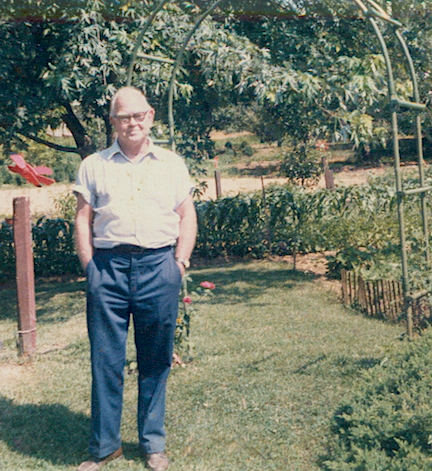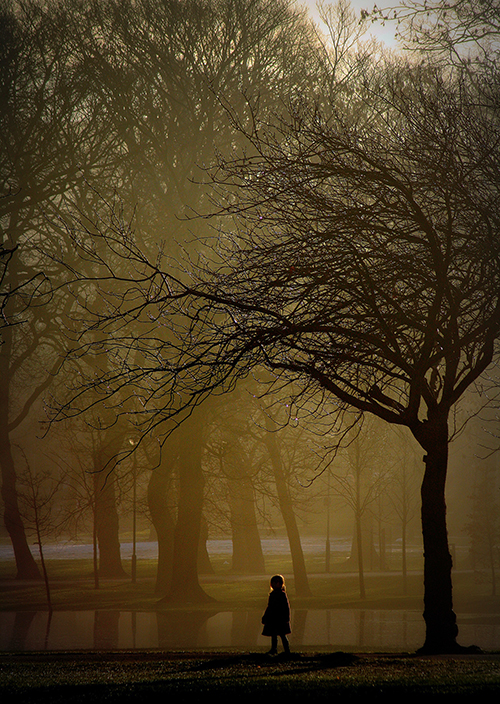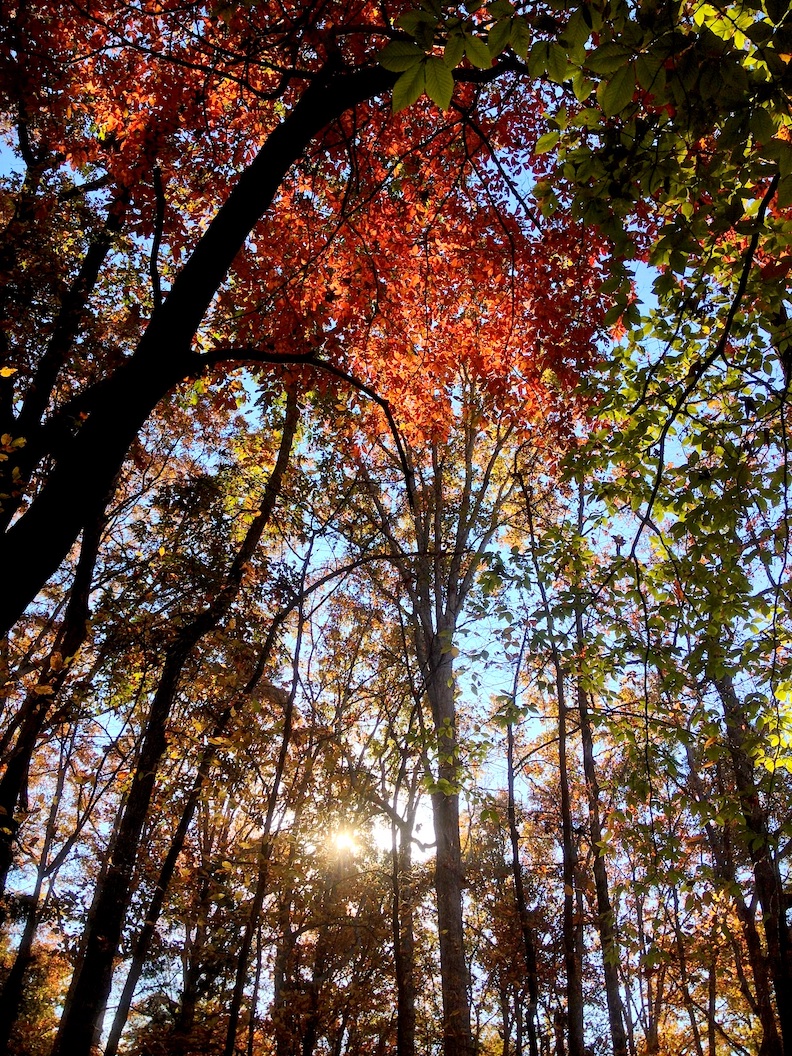The Ocean Spoke
When a place becomes the teacher
At 42, riddled with restlessness, I found myself dropped down onto the whale’s tale of a long, thin desert island in The Bahamas, where for five months I served as the Cape Eleuthera Island School’s “Master Teacher in Residence.” In the end, the island was the master teacher, and I was the student.
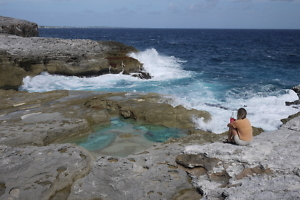
I have a tendency toward wanderlust. A curse and a gift, the urge to travel has repeatedly tapped at my shoulder throughout my life. In every decade of adulthood, I’ve jumped ships and faced the open sea of uncertainty and transition, often filling the space between past and future with roaming. Lured by the promises, possibilities, and mystery of faraway places, I’ve purchased plane tickets, plowed through savings, and worn down the soles of my shoes on cobblestone, brick, gravel, and moss. I’ve rested in the dark cool of age-old churches and lingered in sidewalk cafes, where I sipped local lager ordered in languages I did not speak. Where there were trails, I hiked; where there were views, I gazed.
All settings, both near and far, have sunk their impressions into my DNA. Places have a way of doing that. It happens without our knowing, and it’s a tremendous thing — a private internal travelogue, a photo album, a colorfully stamped passport formed in our psyches that we carry with us always and forever.
It happens without our knowing, and yet what I came to wonder under the kaleidoscopic influence of the Caribbean blues and greens of Cape Eleuthera is whether that imprint can be amplified, changing how we perceive and relate to the settings of our lives.
***
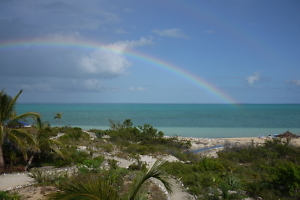
I can see myself now as I was that day, affecting the role of the self-possessed, experienced teacher despite being as rocked by my new circumstances as the students were. My eyes constantly flickered to the seascape outside the classroom window — the water so blue, so beautiful, I could hardly believe it was real.
The students, sophomores and juniors on leave from their stateside high schools, discussed Barry Lopez’s The Rediscovery of North America. While the adolescents expounded upon Lopez’s contention that visitors should approach new settings as they would new acquaintances — respectfully asking questions, appreciating qualities of beauty and interest, noting issues of concern (all of which runs counter to the history of conquest) — I, an encouraging automaton, nodded as though to say, That’s right, Sue. Well said, Sam. This is exactly how we should engage with unfamiliar lands, and what I, from my perch of vast experience, have always done.
Maybe it was the truth in that blue, bedazzling ocean that caused me to trip upon my own comfortable musings. Come on, now, the sea seemed to whisper. Don’t be putting on airs.
In my travels, I’d sat in awe of scenery, edifices, and culture and relished the flavor of unfamiliar food and the cadence and trill of foreign tongues. I’d loved being in places, but had I grown to know them the way one would a new friend? Had I sought knowledge beyond what the guidebooks offered? Or had I simply roamed from one café, vista, museum, pub, or hostel to the next, keeping my destinations and their people safely in the realm of “other”?
Listening to the students cite Lopez passages, I scrambled for self-justification. Perhaps, as a fiction writer, my instinct was to consider aesthetic and sensory experiences, to fill my journals with wonder at what I saw, tasted, and smelled. I preferred to know a place by the impression left on me, not the particulars of history or the names of plant species.
The ocean spoke back. Yes, but…
It was as though the truth of that living body of water was daring me, a classic right-brainer, to walk the walk of the left-brained. Try it on, it seemed to say.
Okay then, I said back, and class was dismissed.
***
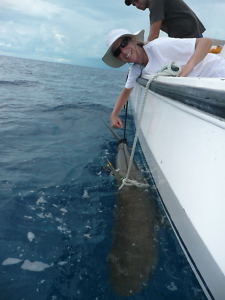
In the weeks that followed, I developed a systemized project: During my five months, I would force-feed myself knowledge with a specific eye on how my learning interplayed with the aesthetic, sensory experience that island life already offered in abundance. In the end I would measure, by whatever degree it’s measurable, how my experience in The Bahamas was improved or altered by this undertaking.
Granted, the concept of my project had its flaws. For one thing, this idea is not radical or original. An entire industry of travel books and educational tourism is built on it. And two, force-feeding is never normal or authentic. Knowing this but allowing myself to forget it, I plunged forward.
I created a notebook where each night I listed topics to explore, as well as notes on what I’d learned that day. I read, inquired, explored, and Googled, and my notebook filled up with facts about everything from plant ecology to politics.
I learned about the casuarina tree, a non-native species whose strikingly dense wood makes lovely but bizarrely heavy furniture; about the peculiar and self-serving characteristics of the remora fish that sucks on and clings to sharks and other predatory swimmers; about the declining numbers of queen conch upon whom many Bahamians’ livelihoods depend. I read about the ooids — rounded grains of sand that hold the geological story of the islands’ formation. I studied the Bahamians’ colonial past and their proud independence from Great Britain in 1973, as well as the challenges the arid climate and sandy soil create for the nation’s farmers.
I visited a very warm, very long, very spirited church service. Non-runner though I am, I ran the Wemyss Bight Homecoming Race that honored Olympian medalist Chris Brown. Each day, I spent hours in and under the water marveling at the psychedelic fish and coral. I helped count the beautiful, invasive lionfish and ventured to deeper waters with a team of marine scientists on a mission to tag sharks. I explored the ruins of several failed enterprises: an abandoned Club Med; the overgrown remains of a once active, international airport; the “golf cart graveyard” of a designer 18-hole course gone to seed. And I grew to know a myriad of local people, all of whom were lovely to the core.
In short, I learned just enough about Eleuthera and The Bahamas to know that I didn’t know much of anything, that there was so much more to learn — a lifetime’s worth. As Tennyson’s Ulysses learns of exploration, “Yet all experience is an arch wherethrough / Gleams that untravelled world whose margin fades / For ever and for ever when I move.”
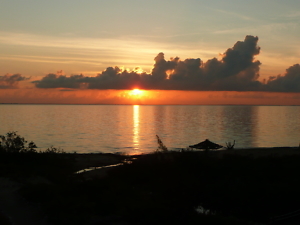
The point of my project, of course, was not encyclopedic knowledge of The Bahamas, but rather to see whether education heightened my sense of place, my relation and attachment to a setting at a soul level. Did knowing the names of the birds flying outside my window or the history of the pineapple plantations make that magical internal impression, that passport stamp on my emotional memory, more vivid and rich?
Answer: Of course, it did — certainly more so than if I’d simply enjoyed conch fritters, rum drinks, and white sand beaches. My project took time and effort, and time and effort invariably turn to care, and caring about a place turns to loving it. In many cases, the things I learned led to concern — not all knowledge is happy knowledge — and concern is another cousin to love. Compound beauty, wonder, and experience with care and concern, with love, and yes, the outcome is a sense of place — vital, relational, bonding, and perhaps life-altering.
Places, like air, are essential to our lives, and we can celebrate these places, care about them, learn about them, think about them — or not. For me, to be conscious of place is to be more fully awake to my life on this planet. My experience as a wannabe left-brainer, a miner digging for knowledge of setting, ultimately jumpstarted what has continued to be a practice I aspire to when I travel — and when I don’t. Because home is a place too.
From my cluttered desk in Tennessee nearly nine years later, my wanderings limited by a global pandemic, I think on Cape Eleuthera as one might an old, dear friend, someone I knew and loved well for a period of time. Barry Lopez, my fact-filled notebook, and mostly that long, skinny island surrounded by blue, bedazzling sea were good teachers. These days, I’m less restless, but even so, wanderlust remains. Only now, it’s not so much an urge to jump ships as a portal to curiosity.
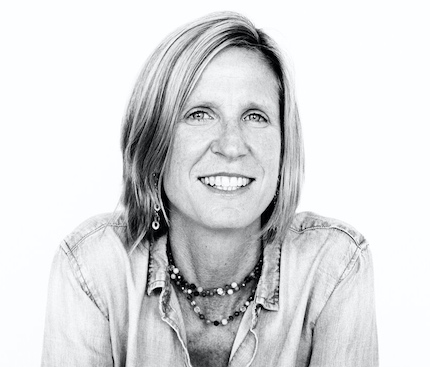
Copyright (c) 2020 by Katie McDougall. All rights reserved. Katie McDougall is a fiction writer and is the co-founder, co-director, and a regular instructor for The Porch, a Nashville literary arts nonprofit. She divides her time between Nashville and Sewanee.
